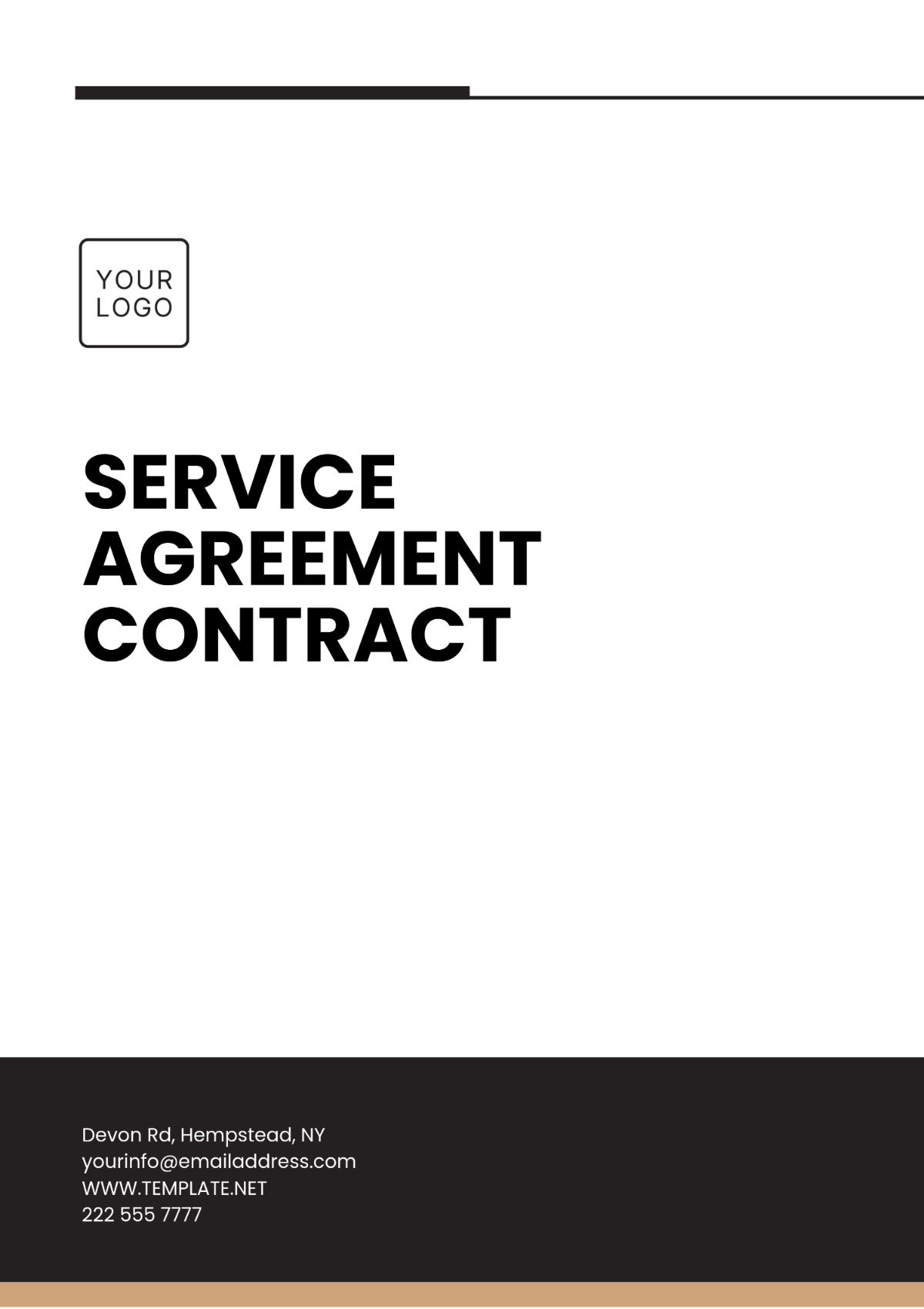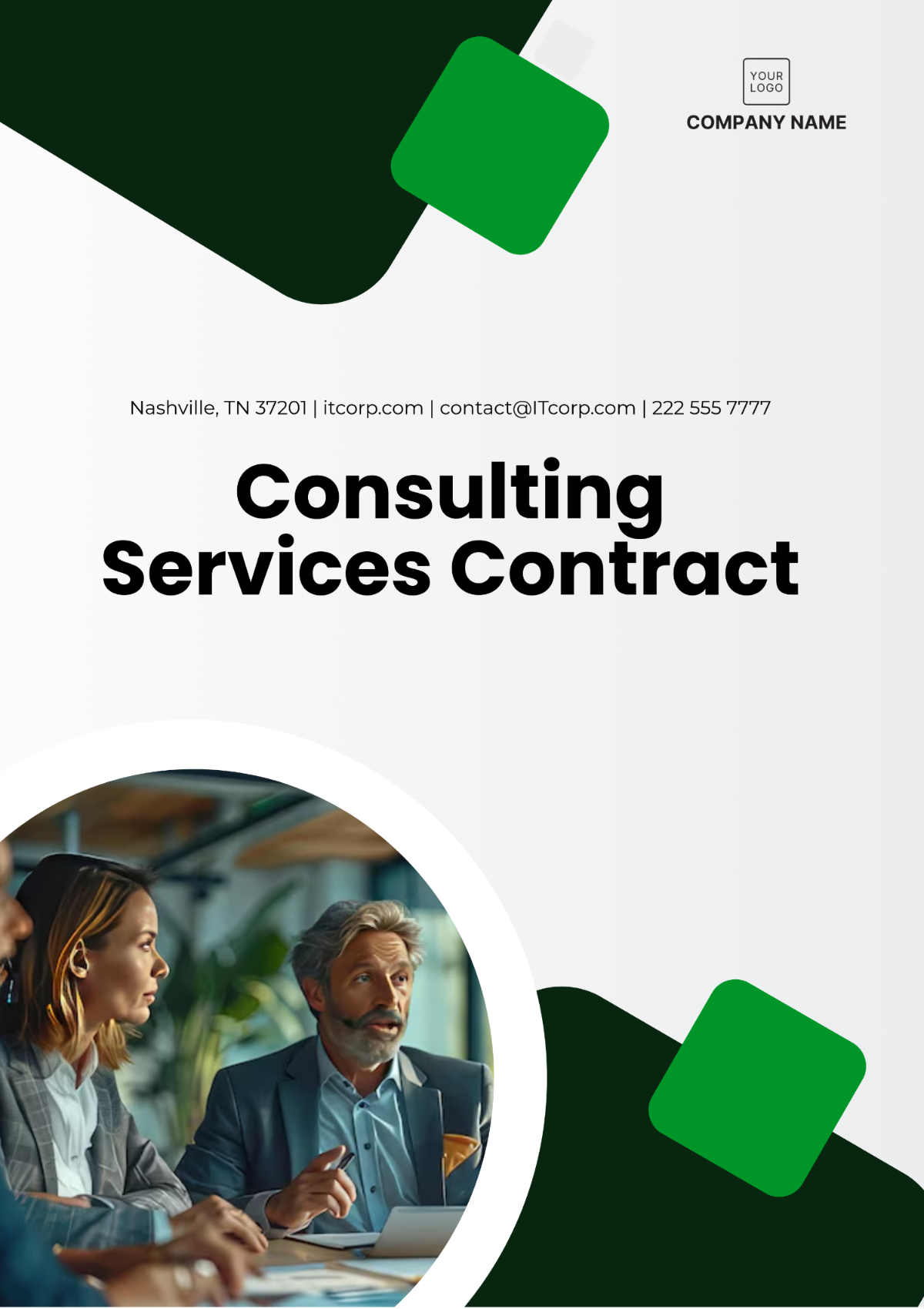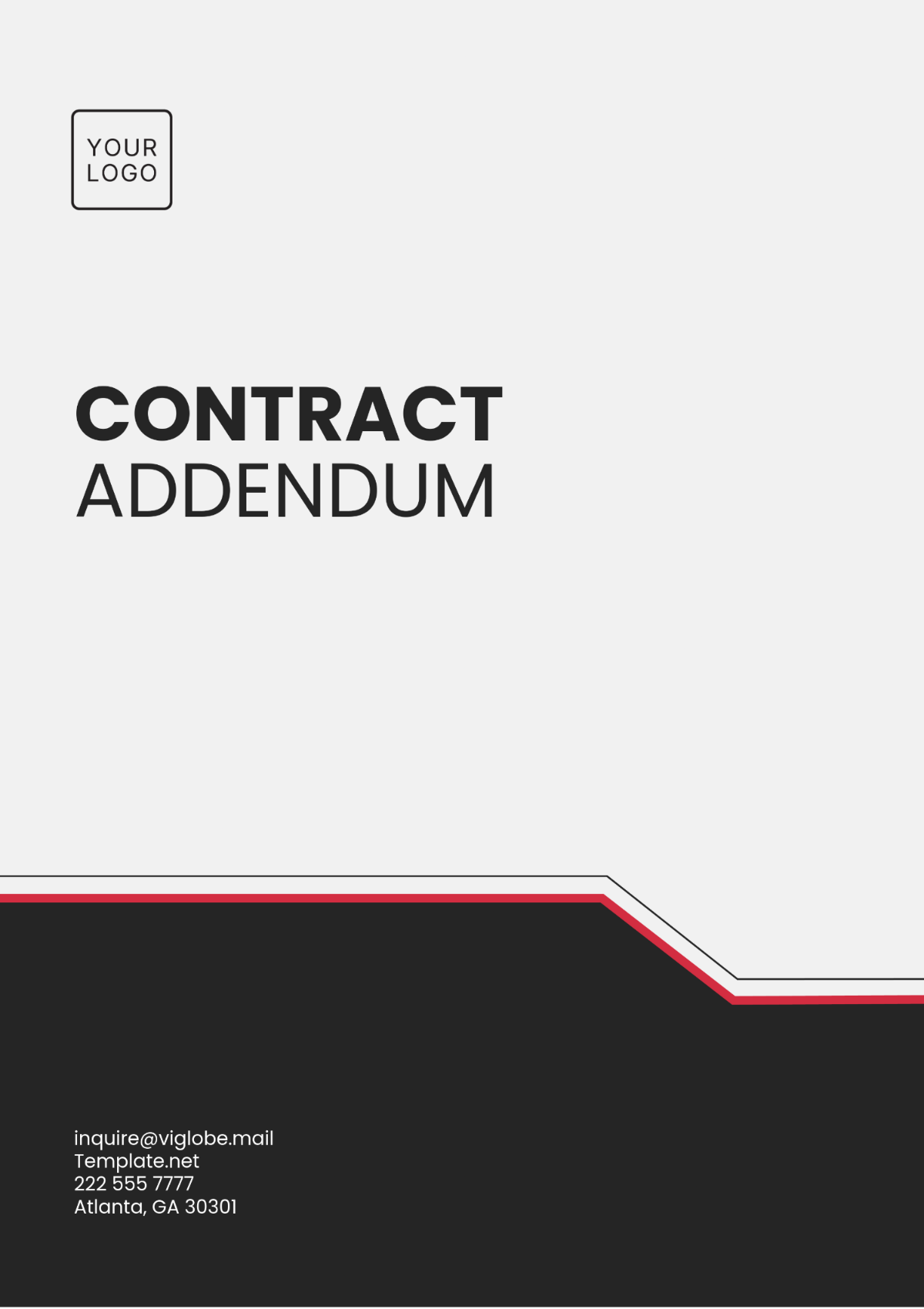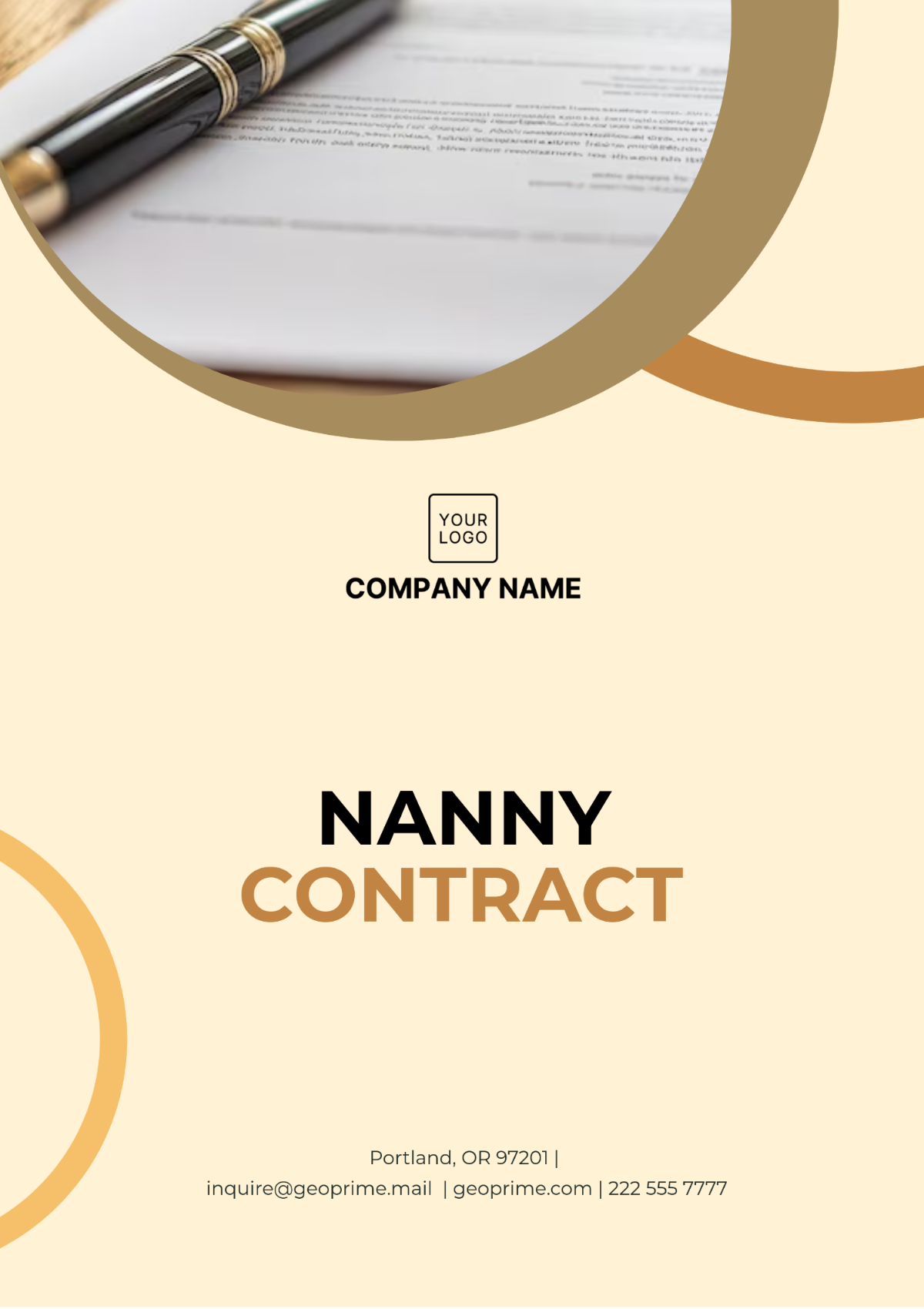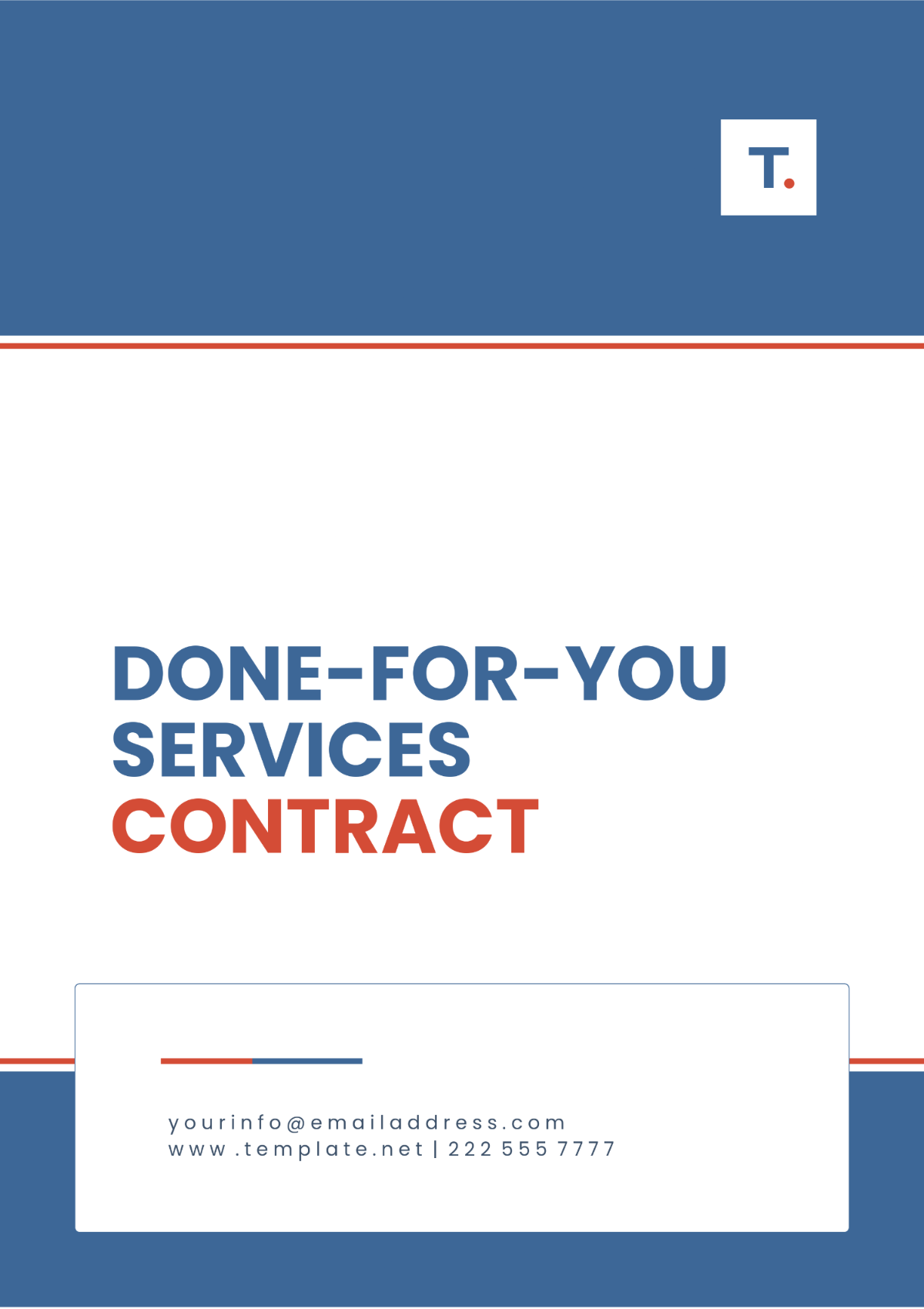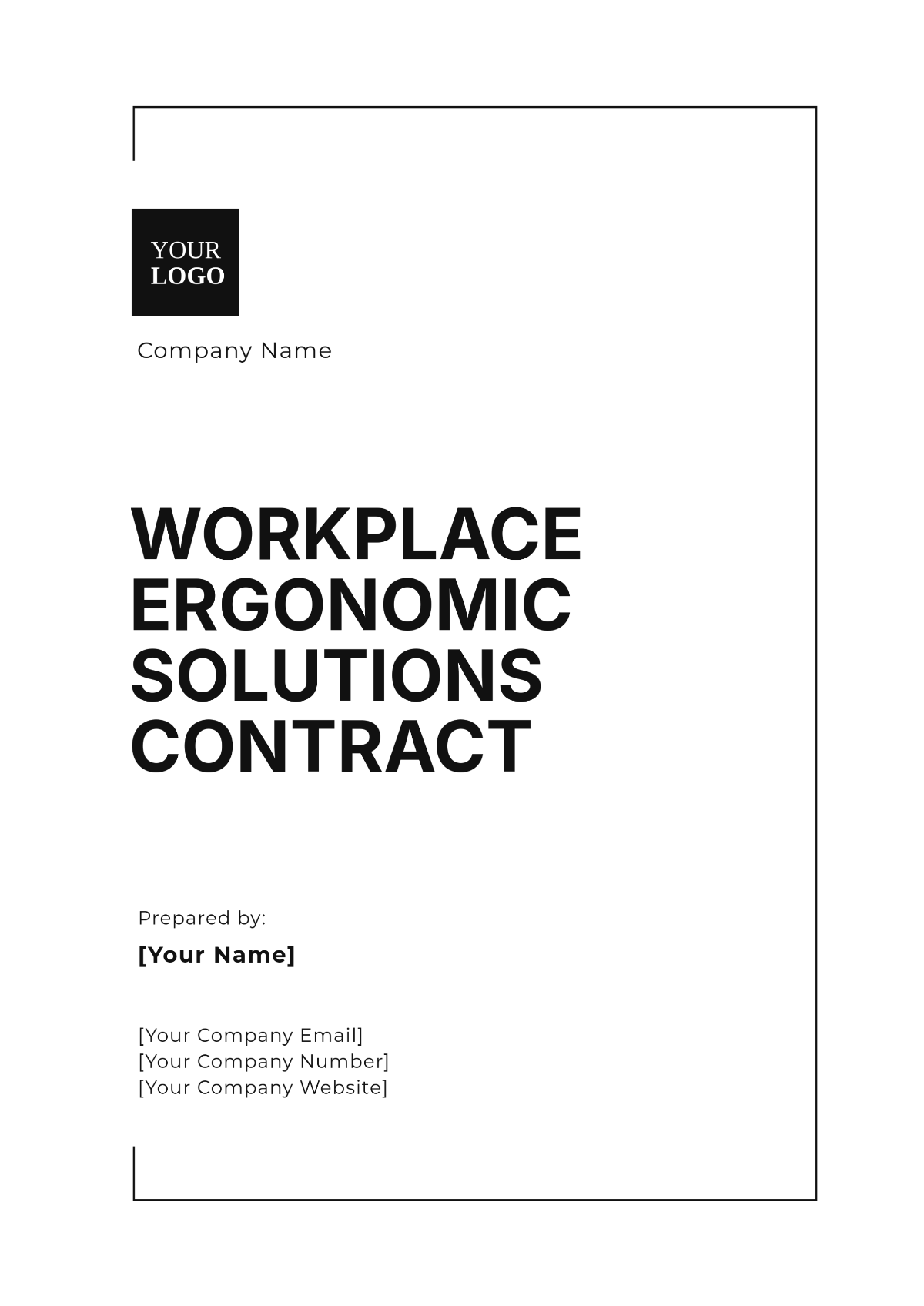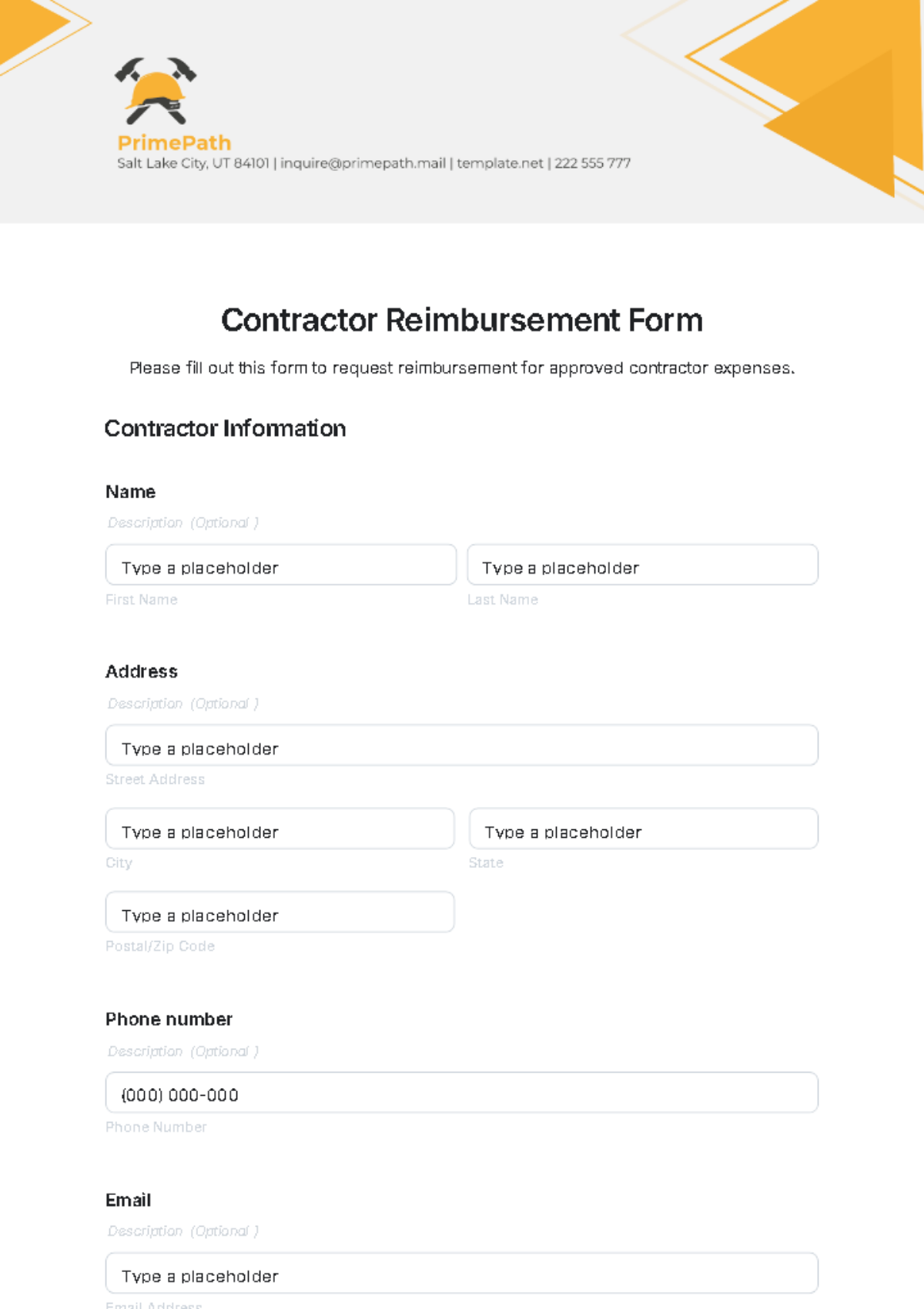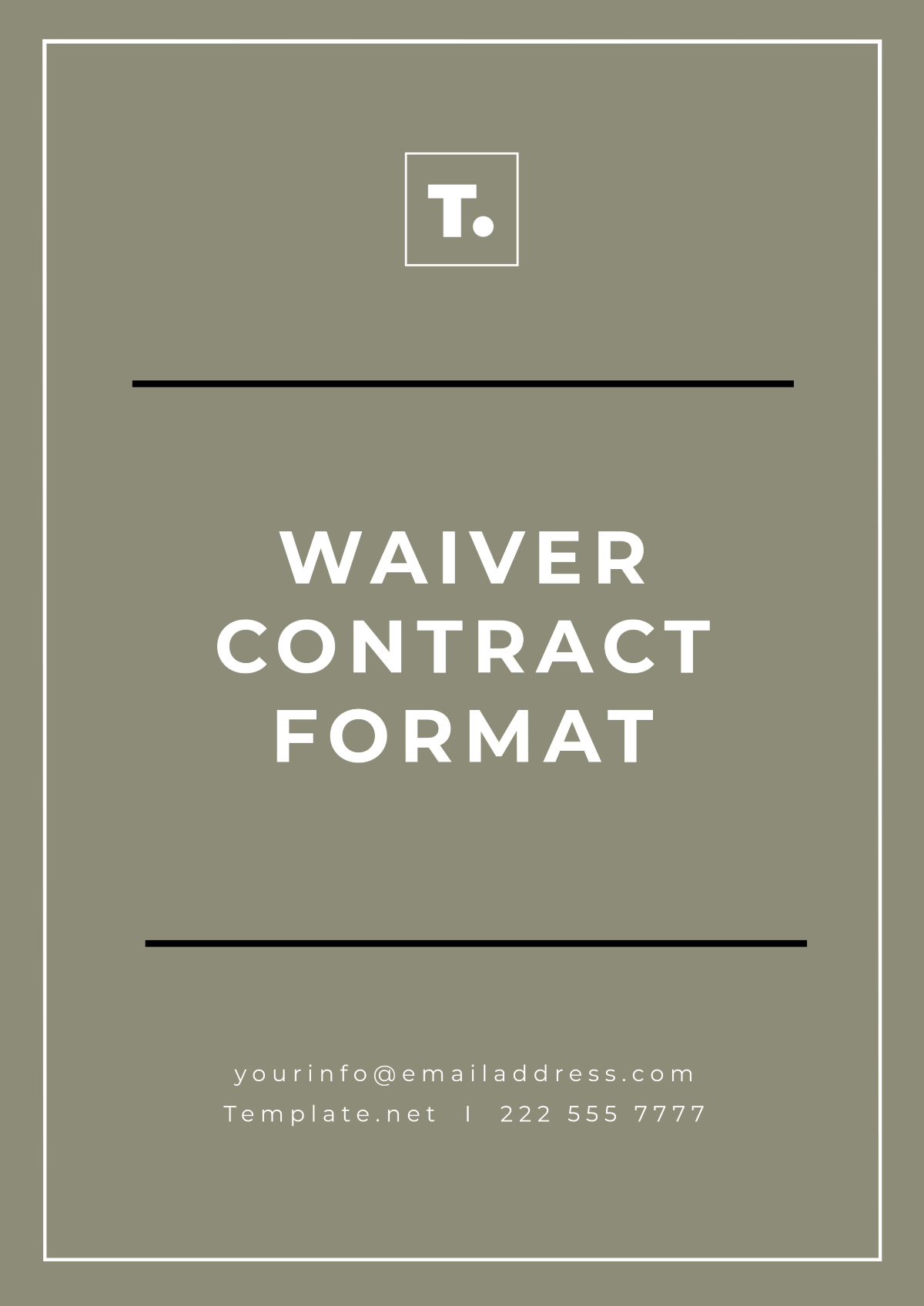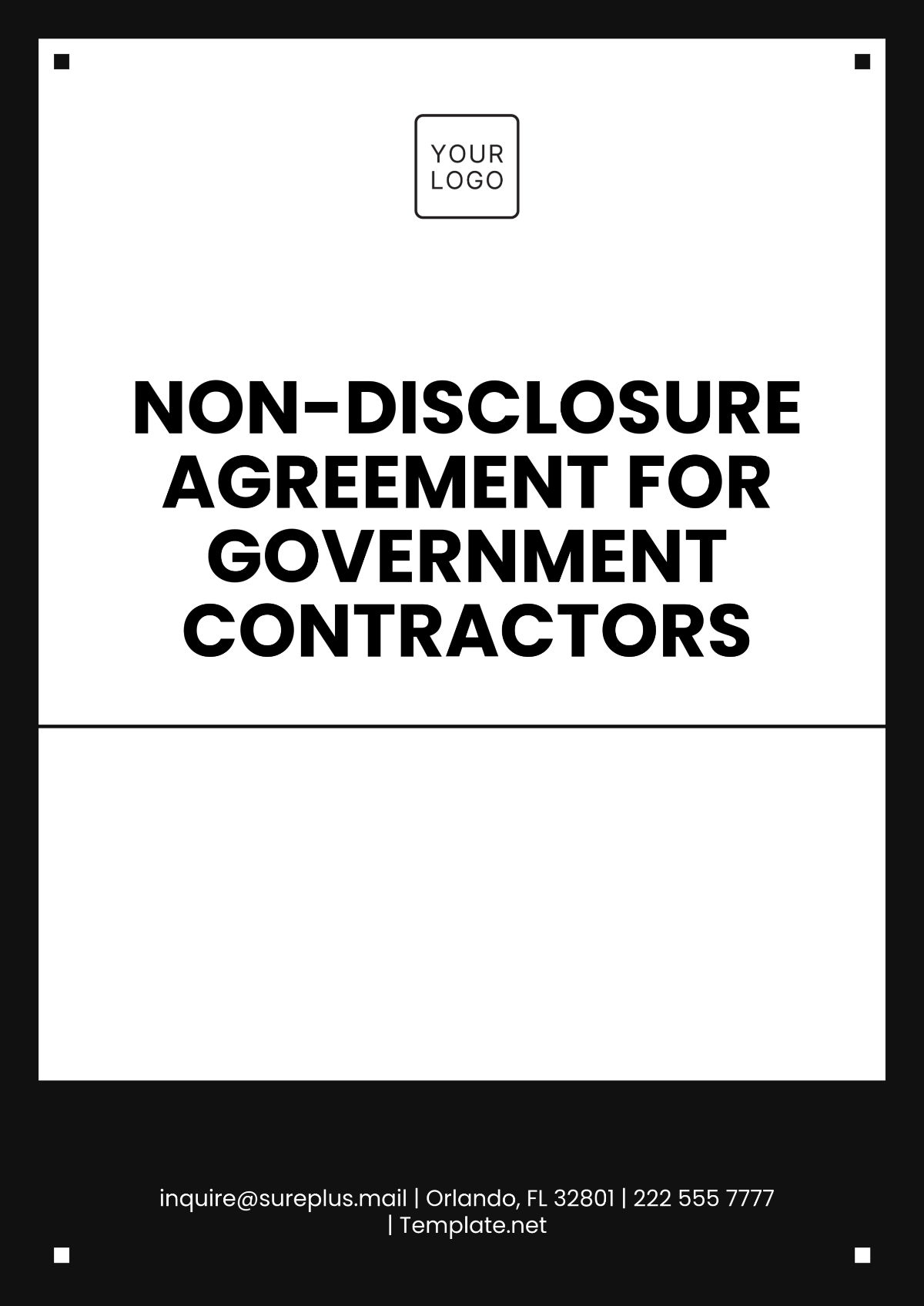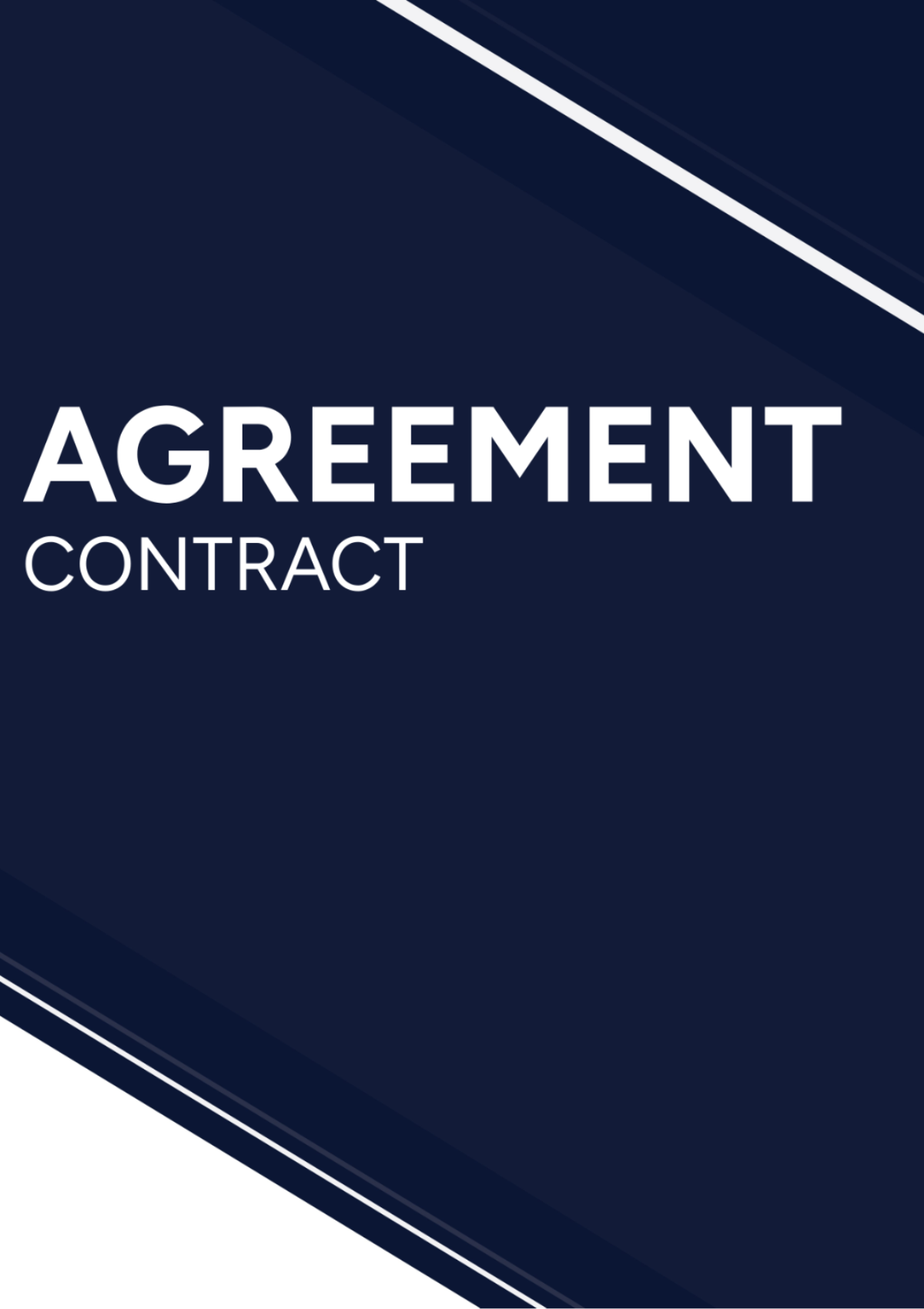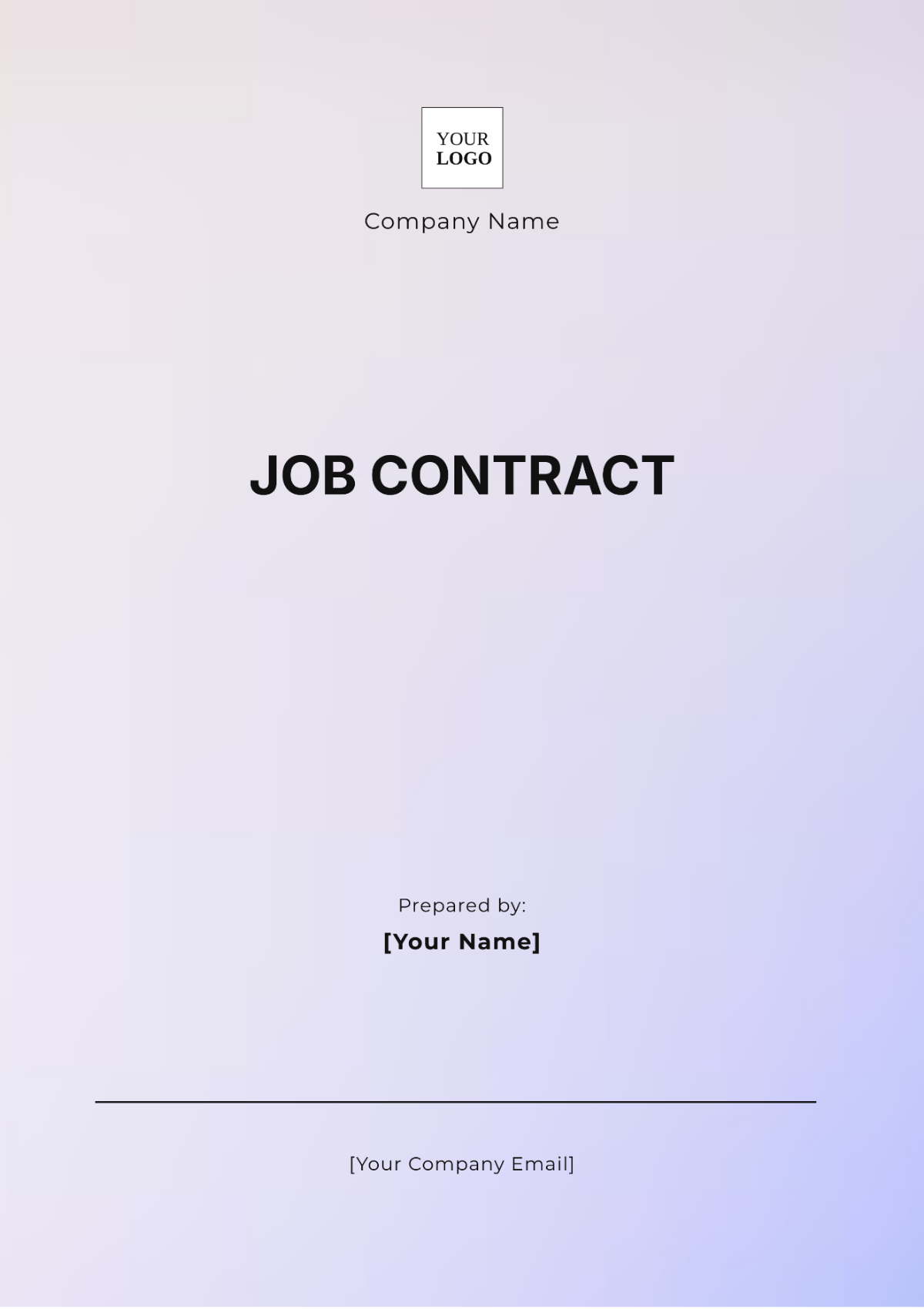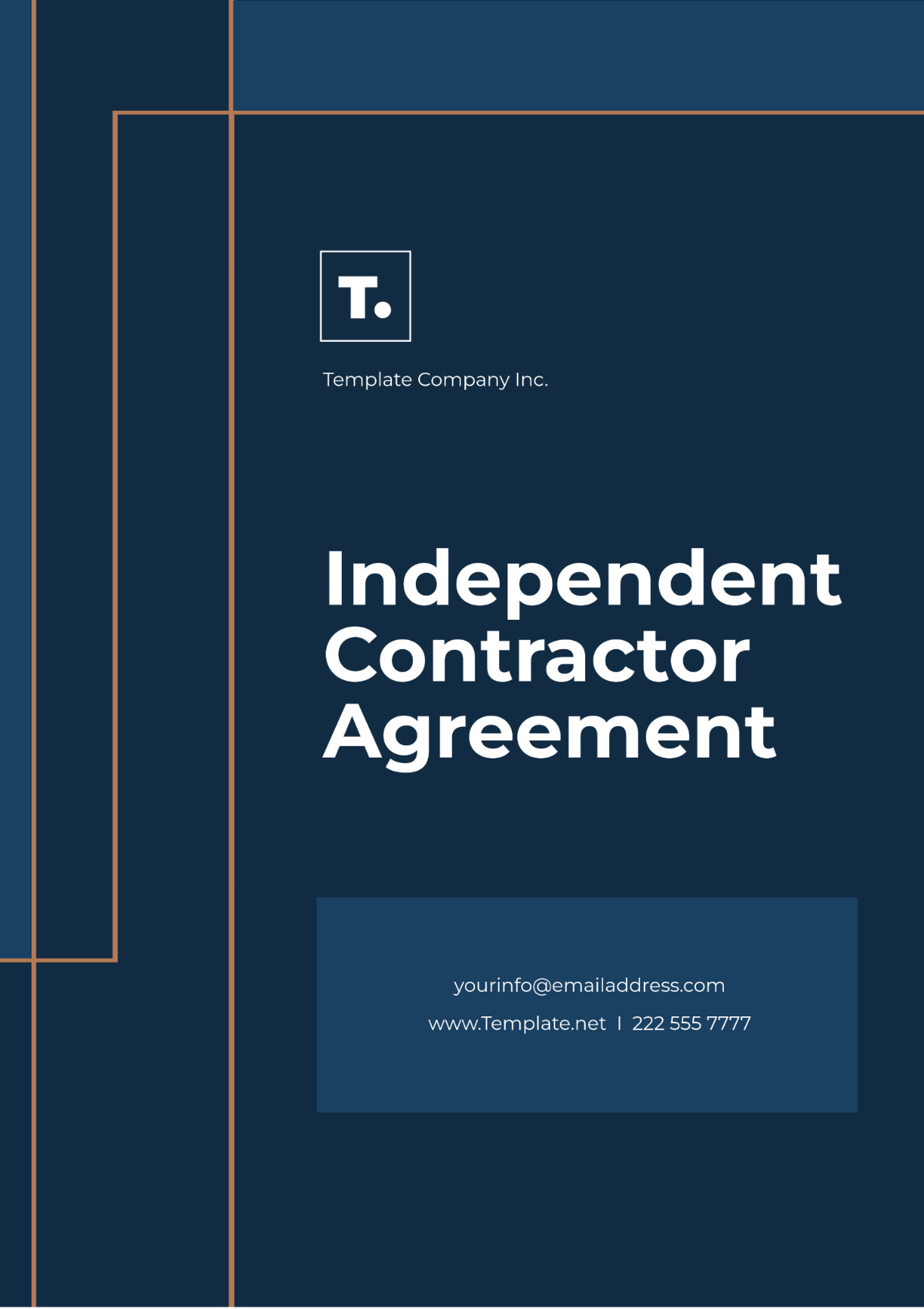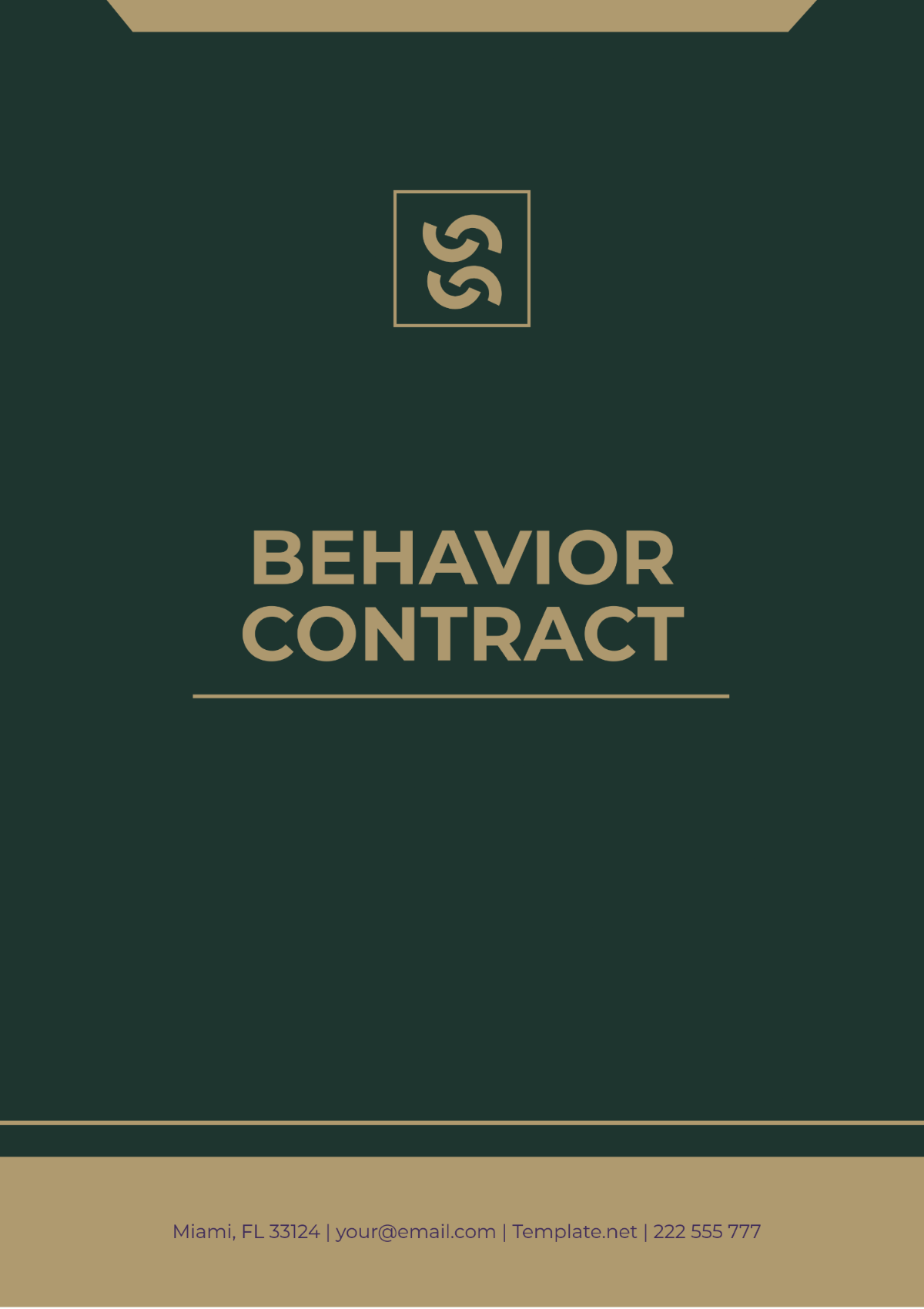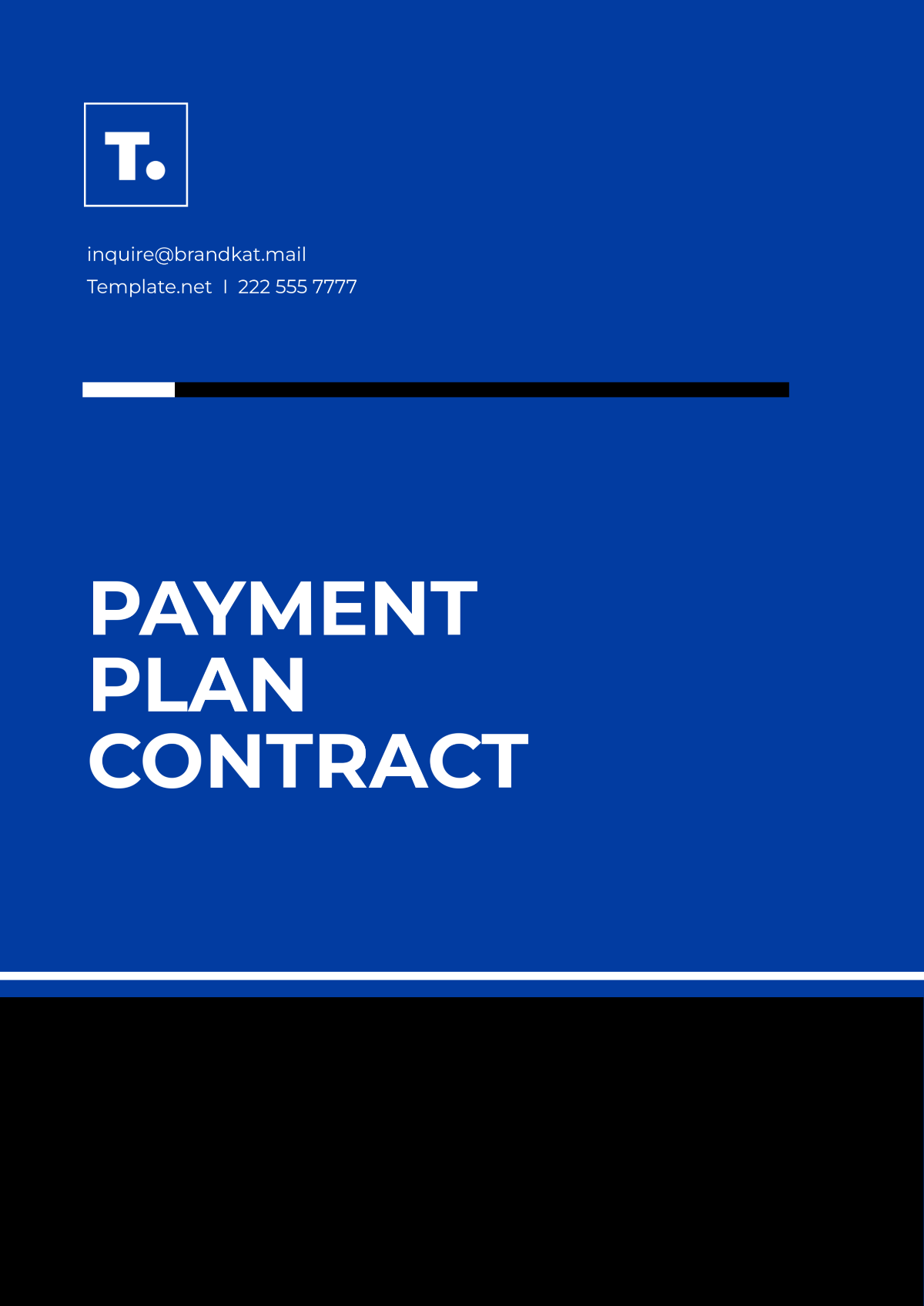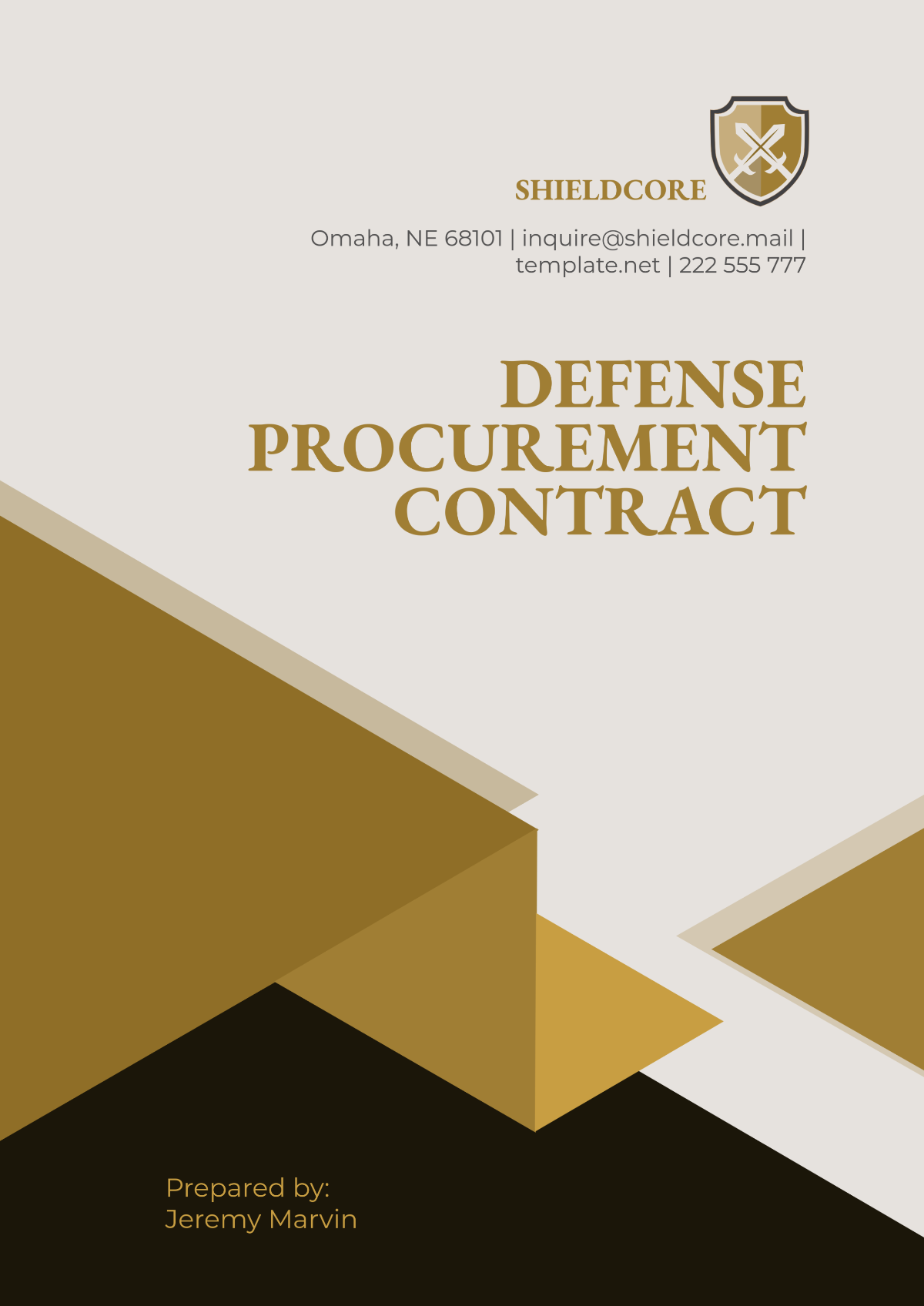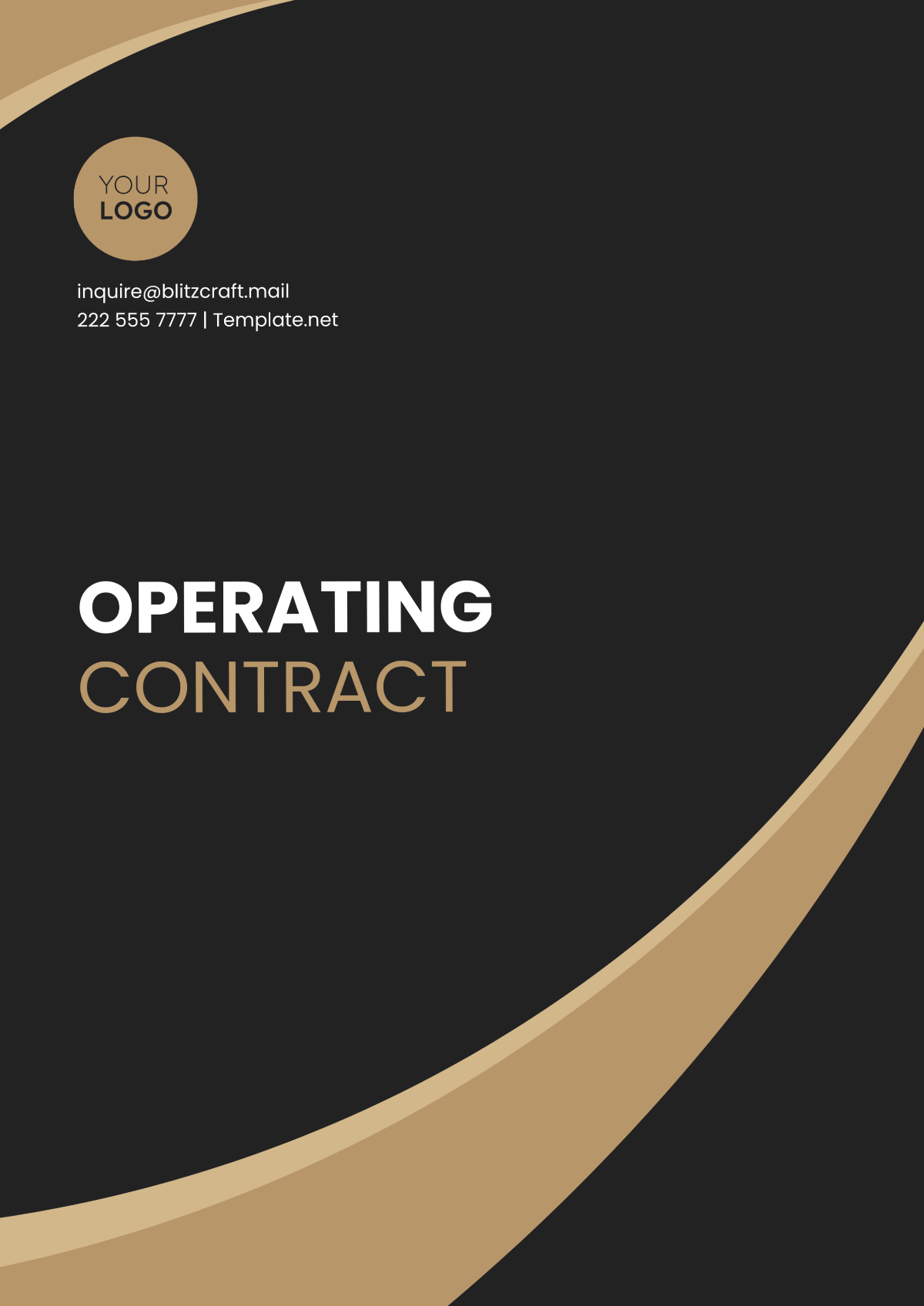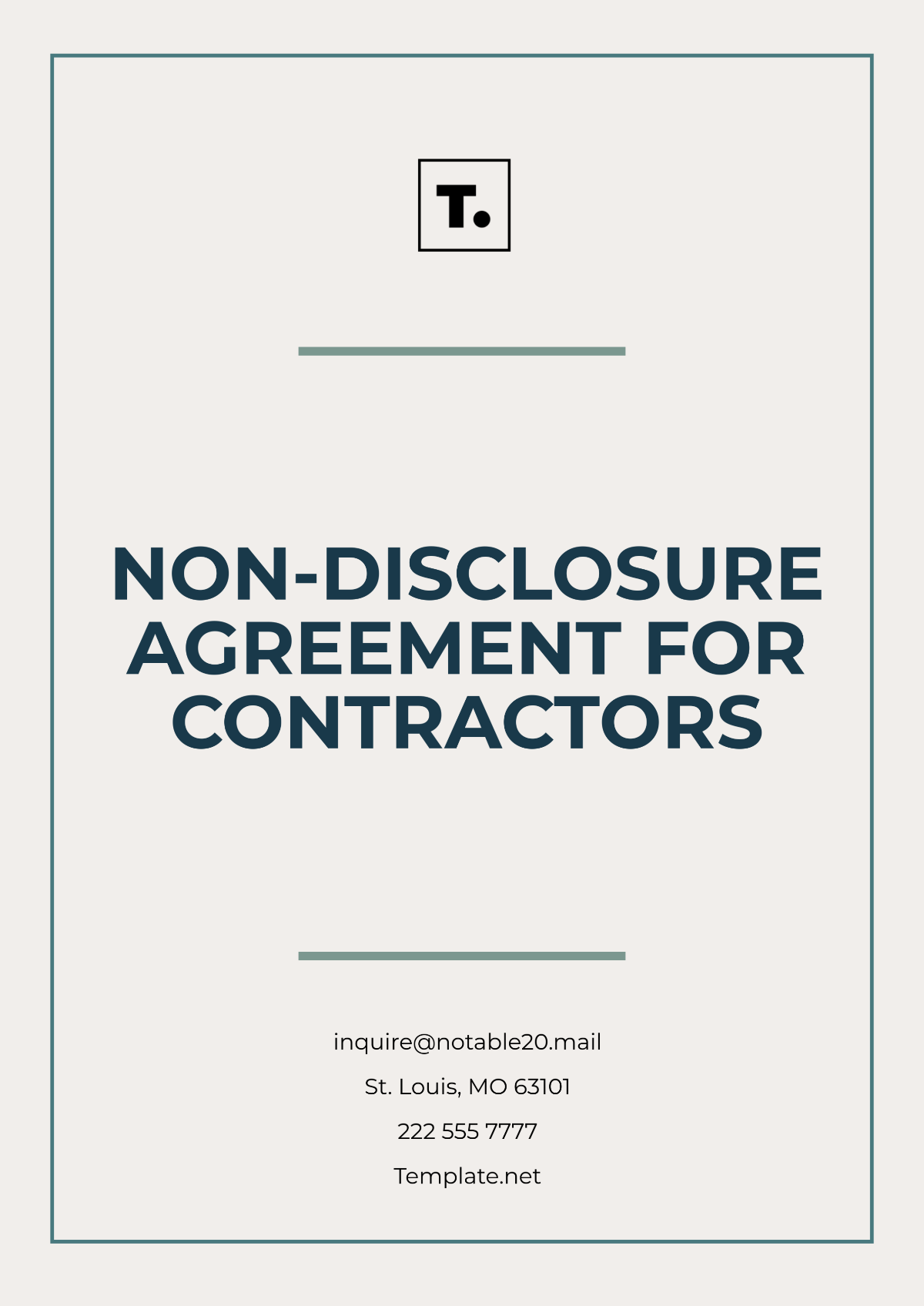Sales Training Manual on Contract Negotiations
I. Introduction
Welcome to the Sales Training Manual on Contract Negotiations, brought to you by [Your Company Name]. This comprehensive guide is designed to equip sales professionals with the essential skills and strategies required for successful contract negotiations in the ever-evolving world of sales.
A. Purpose of the Manual
This manual serves as a valuable resource to enhance your negotiation prowess, empowering you to secure favorable terms and close deals effectively. It offers a structured approach to contract negotiations, ensuring that you are well-prepared, confident, and capable of achieving mutually beneficial agreements.
B. Importance of Contract Negotiations in Sales
Contract negotiations are the cornerstone of successful sales endeavors. They enable you to tailor agreements that meet the needs of both your clients and your company, fostering trust, loyalty, and profitability.
C. Target Audience
This manual is crafted specifically for sales professionals within [Your Company Name], providing you with the tools and knowledge needed to excel in the art of contract negotiations. Whether you are a seasoned sales veteran or new to the field, this resource will help you refine your skills and achieve outstanding results.
II. Understanding Contract Negotiations
A. Definition and Objectives
Contract negotiations refer to the process of discussions and exchanges aimed at reaching a mutually acceptable agreement between parties involved in a business transaction. The primary objectives are to establish the terms, conditions, and obligations that govern the relationship, ensuring clarity, fairness, and legal compliance. Successful contract negotiations result in agreements that protect both parties' interests while fostering a cooperative and sustainable partnership.
B. Types of Contracts
Contracts come in various forms, including sales agreements, service contracts, vendor agreements, and more. Understanding the nuances of different contract types is crucial for tailoring negotiations to specific needs and industries. Each type may have unique requirements and clauses that necessitate careful consideration during the negotiation process.
C. Role of Negotiation in the Sales Process
Negotiation plays a pivotal role in the sales process, acting as the bridge between prospecting and closing deals. Effective negotiation strategies enable sales professionals to address objections, mitigate risks, and customize agreements to meet clients' needs. It builds trust, demonstrates flexibility, and often results in stronger, longer-lasting business relationships.
III. Preparation for Negotiations
Effective preparation is the cornerstone of successful contract negotiations. It involves a series of crucial steps to ensure you enter negotiations with a strategic advantage. Here are the ways to prepare for negotiations:
Researching the Client | In-depth knowledge of your client is fundamental. Research their industry, history, financial stability, and competitors. Understand their pain points, goals, and priorities. Identify key decision-makers and influencers within the organization. This information will enable you to tailor your negotiation approach, addressing their specific needs and concerns. |
Setting Clear Objectives | Define your negotiation objectives clearly. Determine what you aim to achieve – whether it's pricing, terms, or additional services. Having well-defined goals helps you stay focused and measure the success of the negotiation. |
Identifying Potential Challenges | Anticipate and identify potential challenges that may arise during negotiations. Consider objections, objections, and areas of disagreement. Preparing for these challenges in advance allows you to develop strategies to address them effectively, ensuring smoother negotiations and better outcomes. |
IV. Communication and Interpersonal Skills
Effective communication and interpersonal skills are pivotal in contract negotiations, as they establish the foundation for productive interactions. Below are effective skills for effective communication:
Effective Listening | Active listening is a critical skill. It involves fully engaging with what the other party is saying, asking clarifying questions, and demonstrating empathy. By understanding their needs and concerns, you can tailor your responses and proposals more effectively, leading to a more satisfactory outcome. |
Building Rapport | Building trust and rapport is essential for successful negotiations. Create a positive and respectful atmosphere by finding common ground, showing genuine interest, and acknowledging the other party's perspective. Developing rapport fosters goodwill and can make negotiations more collaborative and less adversarial. |
Non-verbal Communication | Non-verbal cues such as body language, facial expressions, and gestures convey important information during negotiations. Be mindful of your own non-verbal signals and learn to interpret the other party's cues. Maintaining open body language, making eye contact, and using gestures purposefully can enhance your ability to connect with and influence others in negotiations. Effective non-verbal communication complements your verbal message and helps build trust. |
V. Negotiation Strategies
There is a myriad of techniques available that you can explore in order to improve and sharpen your negotiation skills. By taking the time to develop these skills, you can ultimately cultivate collaboration amongst colleagues and clients. This would then lead to the attainment of agreements that are beneficial to both parties. This is especially crucial in the continually changing and evolving landscape of the sales industry where negotiation and collaboration are key.
So, to effectively thrive in this field, one must actively seek methods to enhance their skills and adapt to changing circumstances.
A. Competitive vs. Cooperative Approaches
Competitive Approach | Cooperative Approach |
This approach focuses on securing the best possible deal for your side, often at the expense of the other party. It can be useful in situations where you have significant leverage, but it may strain relationships if overused. | In contrast, a cooperative approach aims for mutually beneficial solutions. It emphasizes collaboration, relationship-building, and finding common ground. Striking a balance between competitive and cooperative strategies is often ideal. |
B. Win-Win Negotiation Principles
Exploring Common Interests: Identifying shared interests lays the foundation for win-win negotiations. Discover areas where both parties can benefit, fostering a more collaborative atmosphere.
Creative Problem-Solving: Encourage creativity when seeking solutions. Think outside the box to find innovative ways to meet both parties' needs.
Open Communication: Maintain open and transparent communication throughout negotiations. This helps build trust and ensures that both parties' concerns are addressed.
C. BATNA (Best Alternative to a Negotiated Agreement)
Your BATNA is your Best Alternative to a Negotiated Agreement. It represents the course of action you'll take if negotiations fail. Knowing your BATNA helps you set realistic expectations and evaluate the value of the proposed agreement.
Using BATNA as a Guiding Tool: Refer to your BATNA as a guiding tool during negotiations. It provides a baseline for decision-making, helping you assess whether the current deal is better than your next-best alternative.
VI. Key Negotiation Techniques
Techniques for negotiation represent crucial instruments utilized in securing terms that are favorable within a contract. The following lists the core techniques that can be employed, with each one possessing a distinct impact when used in negotiation tactics:
A. Asking Powerful Questions
Craft questions thoughtfully to elicit valuable information and insights from the other party. Well-phrased questions guide the conversation, uncover needs, and identify potential areas of agreement.
B. Framing and Reframing
Framing for Influence: Present information and issues strategically to shape perceptions and highlight advantageous aspects. Skillful framing can help steer the negotiation in your desired direction.
Reframing for Perspective: Reframe the discussion to explore alternative viewpoints and overcome objections. This technique encourages creative thinking and opens doors to mutually beneficial solutions.
C. Handling Objections
Active Listening: Listen attentively to objections, demonstrating empathy and understanding. By acknowledging concerns, you can work toward addressing them effectively.
Problem-Solving Approach: Treat objections as opportunities to clarify and provide solutions aligned with both parties' interests. Skillful objection handling can build trust and advance negotiations positively.
VII. Handling Common Negotiation Scenarios
It is absolutely essential for the securing of favorable contract terms to effectively navigate common negotiation scenarios. We shall explore strategies for three primary scenarios, which are as important to understand and master for successful negotiations.
A. Price Negotiations
Price negotiations often revolve around finding a balance between value and cost. Begin by understanding the client's budget constraints and objectives. Emphasize the value your product or service delivers. Offer flexible pricing options or value-added benefits to bridge gaps and create win-win solutions.
B. Terms and Conditions
Terms and conditions negotiations involve aligning contract details with both parties' expectations. Clearly define terms related to delivery, payment schedules, warranties, and dispute resolution. Be prepared to negotiate adjustments while ensuring compliance with legal and industry standards. Emphasize the long-term benefits of fair and transparent terms.
C. Scope of Work Adjustments
Scope adjustments can arise due to changing project requirements. Approach this negotiation with flexibility and clarity. Assess the impact of changes on timelines and costs. Collaborate with the client to outline revised deliverables and responsibilities, ensuring that both parties have a clear understanding of the updated scope. Maintain open communication to manage expectations effectively.
VIII. Legal and Compliance Considerations
In the realm of contract negotiations, it is indispensable to possess an extensive comprehension of legal facets and compliance matters. Within this particular section, we offer guidance that aims to assist you in successfully navigating these crucial dimensions that assert a significant impact in contract negotiations.
Understanding the legal framework is fundamental to contract negotiations. Comprehend the following aspects:
Contract Law Basics: Familiarize yourself with the foundational principles of contract law, including offer, acceptance, consideration, and legality.
Regulatory Compliance: Explore the specific regulations governing your industry and region, ensuring that your agreements adhere to legal requirements.
A. Compliance and Ethical Guidelines
Ethical negotiations are essential for long-term success. Dive into:
Ethical Practices: It is essential that you come to understand the significance of carrying out negotiations in a manner that is underpinned by honesty, integrity, and an unambiguous, open and transparent approach.
Anti-Bribery and Anti-Corruption: It is crucial to comprehend and stringently adhere to the regulations and guidelines put in place to prevent and combat instances of bribery and corruption.
B. Documenting the Agreement
Documenting the agreement is the final step. Explore:
Contract Drafting: Learn how to gain valuable insights into the process of drafting clear and comprehensive contracts that meticulously outline all the terms, obligations, and responsibilities of all parties involved.
Execution and Signatures: It is necessary for you to acquire knowledge about the correct procedures that are to be followed when you are executing contracts. Moreover, you also need to understand how to obtain the essential signatures that are required.
IX. Closing the Deal
As the contract negotiations approach their final stages, the art of successfully closing the deal takes on an increased level of importance. This particular section is designed to provide crucial strategies and techniques that can facilitate successful sealing of agreements.
A. Gaining Commitment
Building Momentum: Maintain the positive momentum established during negotiations. Reiterate the benefits of the agreement, emphasizing how it aligns with the client's needs and goals.
Ask for Commitment: Clearly and confidently ask for the commitment to move forward. Be prepared to address any remaining concerns or questions the client may have.
B. Summarizing Key Points
Recap Agreement Terms: Summarize the key terms and conditions of the agreement, ensuring both parties are on the same page. This reinforces clarity and avoids misunderstandings.
Highlight Mutual Benefits: Make a strong emphasis on the reciprocal benefits that arise from this agreement. Reinforce and restate how the arrangement specifically tackles and provides solutions to the issues that have been causing difficulties for the client. Furthermore, underline how this agreement plays a key role in achieving the goals and objectives that the client has set, thus highlighting its importance and advantageous nature.
C. Overcoming Final Hurdles
Addressing Last-Minute Concerns: Ensure that you are well-prepared and ready to address any final objections or concerns that may potentially arise at the end. It is important to utilize your active listening skills to fully comprehend and analyze the nature of these issues, and to employ your problem-solving abilities in order to create and implement effective solutions.
Negotiating Final Details: If it becomes necessary, take the time to negotiate any remaining details or adjustments that may be needed. Don't forget to maintain a cooperative mindset, remembering to focus on solutions rather than problems. This will undoubtedly aid in reaching a satisfying resolution for all parties involved.
X. Post-Negotiation Actions
After successfully completing the negotiation phase, it is of paramount importance to diligently follow through with post-negotiation actions. These actions are necessary to reinforce and strengthen the terms of the agreement. Moreover, they are instrumental in nurturing and building future relationships and promising prospects.
A. Debriefing and Evaluation
Evaluate the Process: Take some time to carefully examine and think about the entire process of the negotiation you just went through. This should include the identification of both the strengths you exhibited during the negotiation and the areas where you have room for improvement. Furthermore, after you have conducted this reflection, assess the outcomes of the negotiation to determine whether the goals and objectives that were set beforehand were successfully met or not.
Learn from Experience: If you want to broaden your understanding and perspectives, one recommended approach would be to collect feedback from the individuals that form your team and your colleagues at work. They will offer you different viewpoints, which can strengthen your understanding. Next, carefully dissect and analyze the feedback to ascertain precisely what strategies or approaches worked well, and what aspects or areas could use some improvements.
B. Relationship Building
Nurture the Relationship: Maintain regular communication with the client. Build on the trust established during negotiations to strengthen the partnership over time.
Deliver on Promises: Ensure that both parties uphold their commitments outlined in the agreement. Consistently meeting expectations fosters trust and long-term collaboration.
C. Continuous Improvement
Adapt and Grow: The essential wisdom and knowledge garnered from past negotiations should be utilized to polish and enhance your negotiation strategies and tactics. Simultaneously, it’s equally pivotal for you to continuously stay updated about the dominant trends and the most effective practices prevalent in your industry as it would provide you with a competitive edge and help you stay relevant in this rapidly evolving business landscape.
XI. Conclusion
In conclusion, mastering the art of contract negotiations is a critical skill for sales professionals. This comprehensive manual has provided valuable insights and strategies to navigate the complexities of negotiations successfully. From understanding legal frameworks to closing deals and fostering post-negotiation relationships, the knowledge and techniques shared here will empower you to achieve mutually beneficial agreements and thrive in the dynamic world of sales. Remember, continuous learning and practice are key to becoming a proficient negotiator. Best of luck in your future negotiations!




